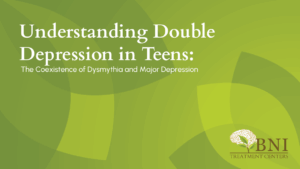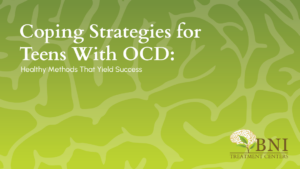The fact that many teens abuse alcohol is not a new development. This age group has always pushed boundaries and experimented with substances. Still, how do parents inform their kids of the dangers of teen binge drinking? Few teens are aware of how toxic alcohol can be when exceeding the amount that the body can safely handle.
Teen Binge Drinking Defined
Teens enjoy socializing, and the gatherings may involve alcohol. Playing drinking games like beer pong leads teens to consume large quantities of alcohol in a short period. While it may feel like good fun, the result can be devastating.
The body is only able to metabolize a certain amount of alcohol. The liver can process one ounce of liquor per hour, so drinking more than that amount can result in toxicity. When five or more alcoholic drinks are consumed within a two-hour period, the liver and bloodstream become overwhelmed.
Alcohol poisoning impacts the central nervous system, causing respiratory distress, slowed heart rate, and disables gag reflux. As a result, the teen could choke to death on vomit, or inhale vomit into their lungs. Alcohol poisoning is a medical emergency that, if ignored, can have a fatal outcome.
The Dangers of Teens Binge Drinking
Of course, the number one danger of binge drinking is alcohol poisoning. This is a serious and sometimes fatal health event that has claimed too many young lives. But there are other dangers of teens binge drinking besides toxicity. Binge drinking may also cause:
- Brain damage.
- Auto accidents.
- Unprotected sex, STDs, unplanned pregnancy.
- Violent behavior or sexual assault.
- Cognitive issues like memory problems, learning difficulties, and falling grades.
- Increased risk of heart disease, high blood pressure, liver disease, and stroke.
- Increased risk of developing cancer of the breast, liver, colon, mouth, throat, and esophagus
- Increased risk of developing alcoholism in adulthood.
What to Teach your Teens About Alcohol
Parents should open up a dialog about the dangers of teen binge drinking by middle school at the latest. Teens may wish to ignore the warnings, but parents need to persist anyway. It may help to convey the message if parents share a news story about a young person who has died of alcohol poisoning.
Here are some important points to make when discussing alcohol with your teenager:
- Binge drinking can be fatal. Teens and young adults often participate in drinking games at parties. These games prompt teens to consume excessive amounts of alcohol in a short period of time, causing alcohol poisoning.
- Teen drinking increases the chances of alcoholism in adulthood. Teens who start drinking before age 15 are six times more likely to become alcoholics later.
- Mixing alcohol with other substances is dangerous. Some teens may combine the use of alcohol with other drugs of abuse, such as caffeine, sedatives, or stimulants. This can lead to heart problems, respiratory failure, or accidents, all of which may prove fatal.
Signs of Teen Drinking
When a teen begins abusing alcohol, there are some common signs that alert parents that a problem might be present. Some of the red flags include:
- Being secretive. The teen may be partying without the parent’s knowledge, which often includes lying about their whereabouts. Teens who abuse alcohol may begin to withdraw from family, wanting to spend time alone in their room instead. The teen may hide alcohol in their room, backpack, or car.
- School issues. The teen’s grades may drop because they are not doing homework or paying attention in class. They miss school due to hangovers, or they may ditch school to drink with friends. They may engage in fights, leading to disciplinary action at school.
- Moodiness. Teens who binge drink may become moodier. The teen may be irritable, temperamental, and defensive. This may cause them to have problems in their relationships with family and friends.
- Rebellious attitude. The teen may begin to disobey family rules and curfews and become rebellious towards parents and authority figures. They may begin to hang out and drink with a sketchy crowd and drop their old friends.
- Signs of intoxication. The teen shows signs of alcohol use, such as:
- Smelling of alcohol.
- Slurred speech.
- Bloodshot eyes.
- Slowed reflexes and reaction time.
- Vomiting
- Loss of coordination.
- Aggressive behavior.
- Hangovers
- DUI arrest.
When Your Teen Needs Medical Detox and Treatment
If a teen’s binge drinking has become routine, they will benefit from a residential treatment program. The treatment protocol for teens with an alcohol problem involves a multi-pronged approach including:
Medical Detox: Teens with an alcohol use disorder will first need to complete a medical detox and withdrawal. An expert medical staff monitors the entire process.
Psychotherapy: Teens benefit from one-on-one talk therapy because these sessions offer a supportive space to explore any underlying issues. The therapist will access evidence-based therapies, such as CBT, solutions-focused therapy, and MET.
Family therapy: The family is a teen’s main source of support, so the program focuses on improving the family dynamic.
Psychosocial group therapy: Teens benefit from sharing their own experiences with peers. The group sessions feature a therapist who provides topics for discussion.
Dual diagnosis support: Some teens have a co-occurring mental health disorder, such as depression, bipolar disorder, or anxiety disorder along with the alcohol problem. Both disorders must be treated at the same time.
Experiential activities: Teens participate in group activities, like hiking, art therapy, surf therapy, equine therapy, and music or drama exercises.
Parents that observe the warning signs of alcohol abuse can obtain help for their teen. The earlier this action is taken, the better the long-term outcome will be.
BNI Treatment Centers Medical Detox and Treatment
BNI Treatment Centers is a trusted treatment provider for teen mental health and substance use disorders. If your teen is abusing alcohol and you fear the dangers of teen binge drinking, call us today at (888) 522-1504.




